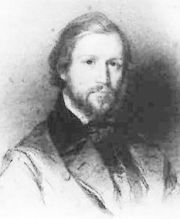

CHARLES-VALENTIN ALKAN
30thNovember 1813 --- 29thMarch 1888
Copyright 1994-1998 Encyclopaedia Britannica
Last Updated on Febraury 2026
By Steven Ritchie
And now for the Music

NEW (4898)"Deuxieme Nocturne, Opus.57, No.1". Sequenced by Steven Ritchie.
NEW (4900)"Troisieme Nocturne, Opus.57, No.2". Sequenced by Steven Ritchie.
Thanks to G Yogore for the music below.
(4437)"Trois Morceaux dans le genre pathetique, Aime-moi, Opus.15, No.1". Sequenced by S.G.Yogore. (4436)"Trois Morceaux dans le genre pathetique, Le Vent, Opus.15, No.2". Sequenced by S.G.Yogore. (4435)"Trois Morceaux dans le genre pathetique, Morte, Opus.15, No.3". Sequenced by S.G.Yogore. (4434)"Variations sur Ah, Segnata e la mia morte, Opus.16 No.4". Sequenced by S.G.Yogore. (4433)"Variations sur, un theme de Bellini, Opus.16 No.5". Sequenced by S.G.Yogore. (4432)"Variations, quasi fantaisie, Opus.16 No.6". Sequenced by S.G.Yogore. (3633)"Alleluia, Opus.25". Sequenced by S.G.Yogore. (3632)"Chemin De Fer Opus.27". Sequenced by S.G.Yogore. (3631)"Bourree D'Auvergne, Opus.29". Sequenced by S.G.Yogore. (4760)"Sonata 'Les quatre ages', Opus.33, No.1". Sequenced by S.G.Yogore. (4759)"Sonata 'Les quatre ages', Opus.33, No.2". Sequenced by S.G.Yogore. (4758)"Sonata 'Les quatre ages', Opus.33, No.3". Sequenced by S.G.Yogore. (4757)"Sonata 'Les quatre ages', Opus.33, No.4". Sequenced by S.G.Yogore. Thanks to Mark Davies for the music below.
New"Finale, in Eb Opus 39, No.7". Sequenced by Mark Davies. New"Menuet, in Bb Opus.39, No.6". Sequenced by Mark Davies. Thanks to Peter R Wolfe for the music below.
(41a)"Etude Opus.35, No.5". Sequenced by Peter R Wolfe. (38)"Chantes Opus.38, No.1". Sequenced by Peter R Wolfe. (82)"Le Festin D'esope, Opus.39". Sequenced by Peter R Wolfe. (40a)"Etude Opus.39, No.12". Sequenced by Peter R Wolfe. New"Scherzo Diabolique, Opus.39, No.3". Sequenced by Peter R Wolfe. (42a)"Etude Opus.76, No.2". Sequenced by Peter R Wolfe. (1167)"Etude Opus.76, No.1 for the left hand alone". Sequenced by Peter R Wolfe. (1168)"Etude Opus.76, No.2 for the right hand alone". Sequenced by Peter R Wolfe. (1169)"Etude Opus.76, No.3 for both hands". Sequenced by Peter R Wolfe. Thanks to Philip DeWalt for the music below.
(1172)"Gros Temps"(Foul Weather) From "Les Mois", Opus. 74, No.1". Sequenced by Philip DeWalt. (1173)"Un Nuit D'ete, Suite No. 1 from Les Mois". Sequenced by Philip DeWalt. (1174)"Saltarelle, Opus.23". Sequenced by Philip DeWalt. (1170)"Hallelujah, (Psalm 150)". Sequenced by David Coronel. Extracts from his Symphony for Solo Piano.
"Symphony for Solo Piano Movement No.1". Sequencer Unknown. "Symphony for Solo Piano Movement No.2". Sequencer Unknown. "Symphony for Solo Piano Movement No.3". Sequencer Unknown. "Symphony for Solo Piano Movement No.4". Sequencer Unknown.

If you done any Classical pieces of say for example, Delius, mozart, and so on etc,
please email them to the classical music site with details to
"classical (@) ntlworld.com" (written this way to stop spammers)
just remove spaces and brackets for email address), thank you.

Visitors to this page --

Back to Classical Midi Main Menu click "HERE"